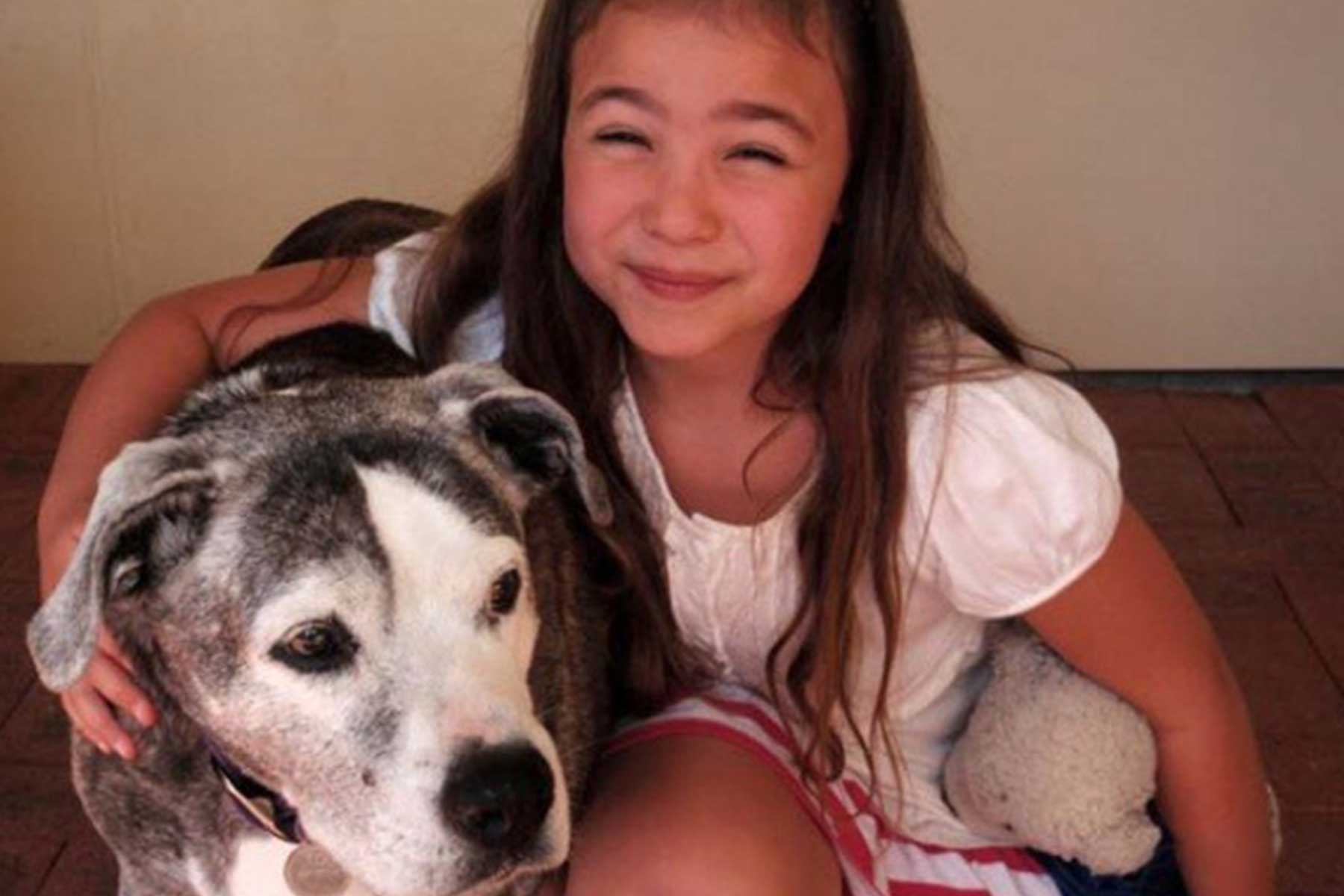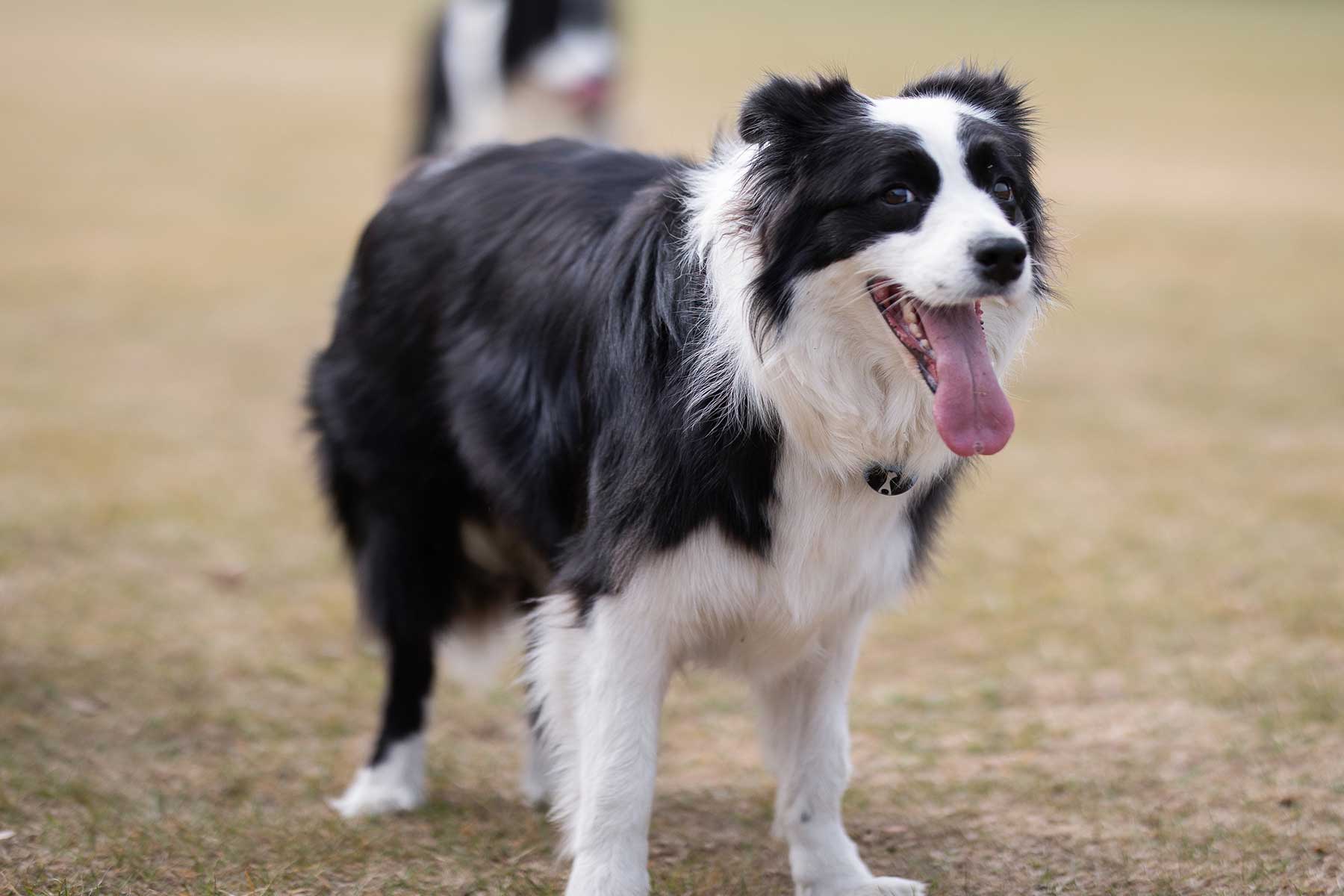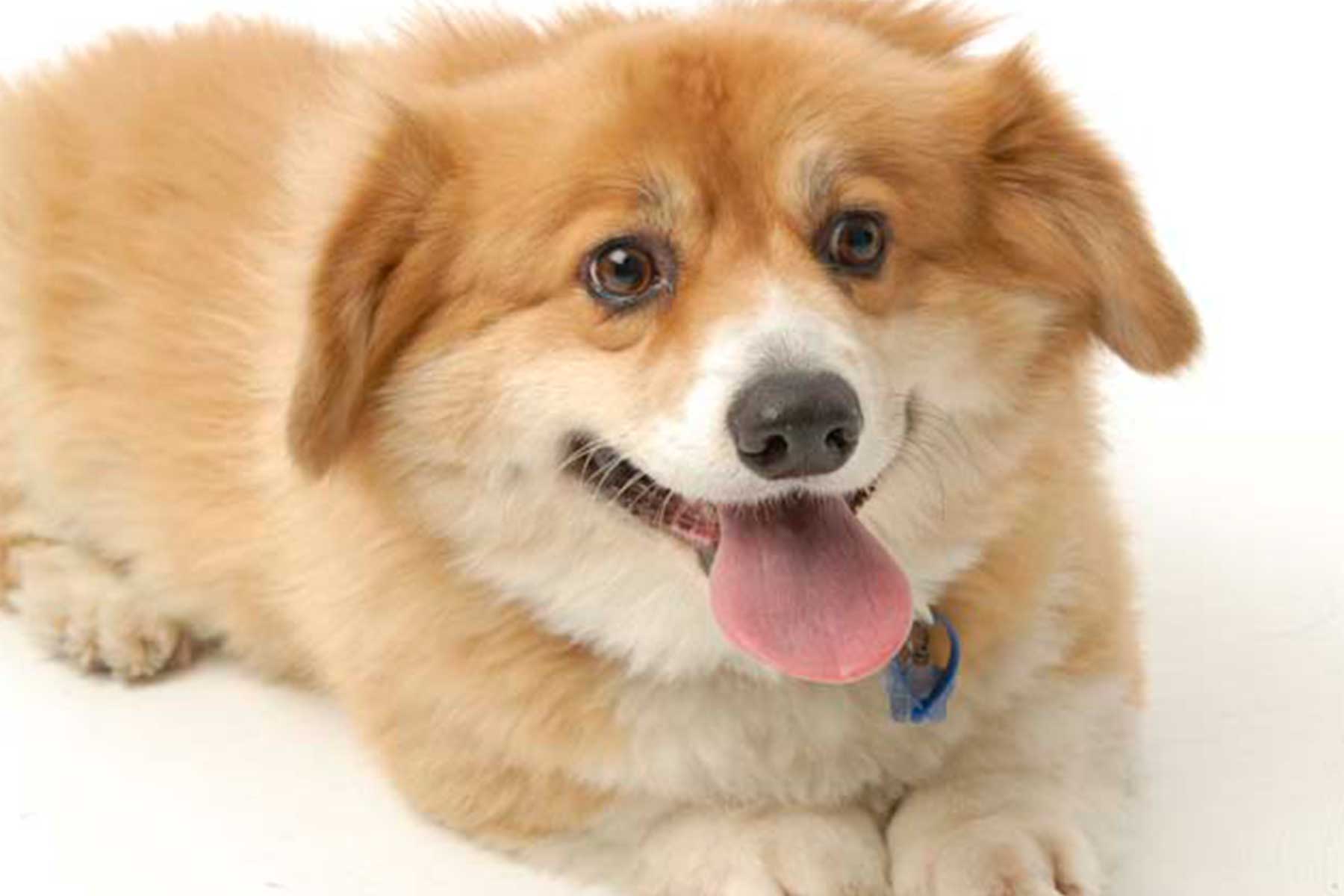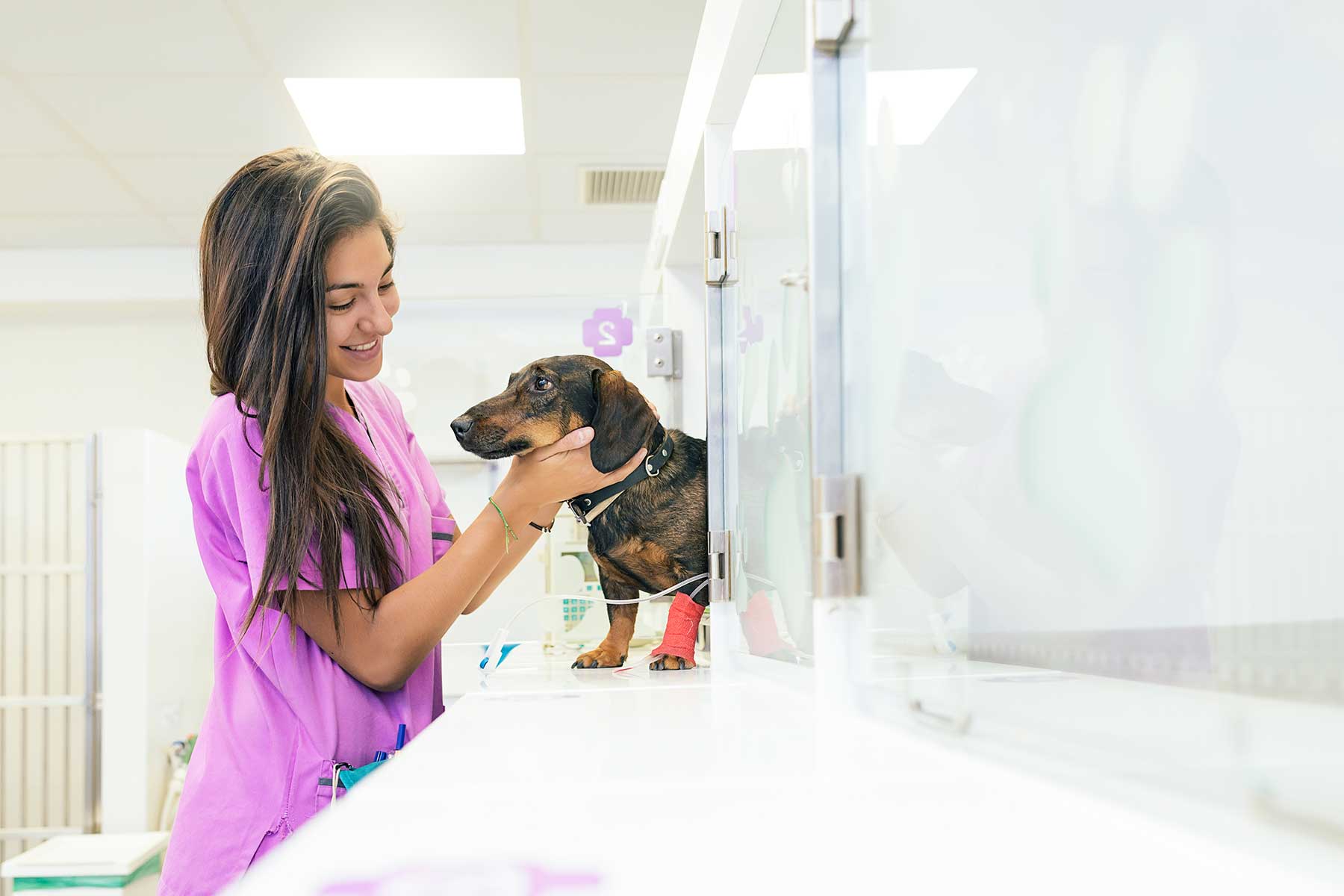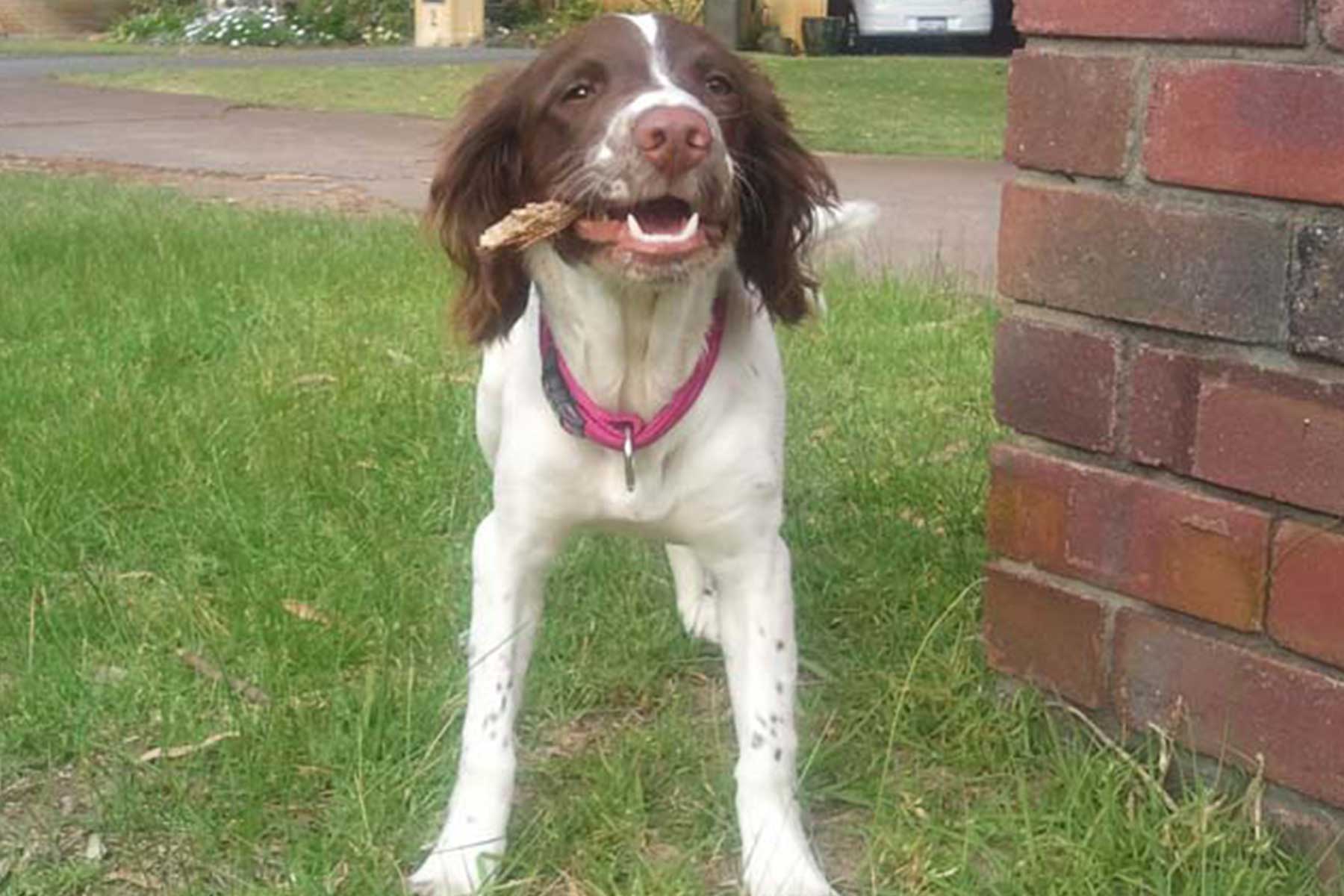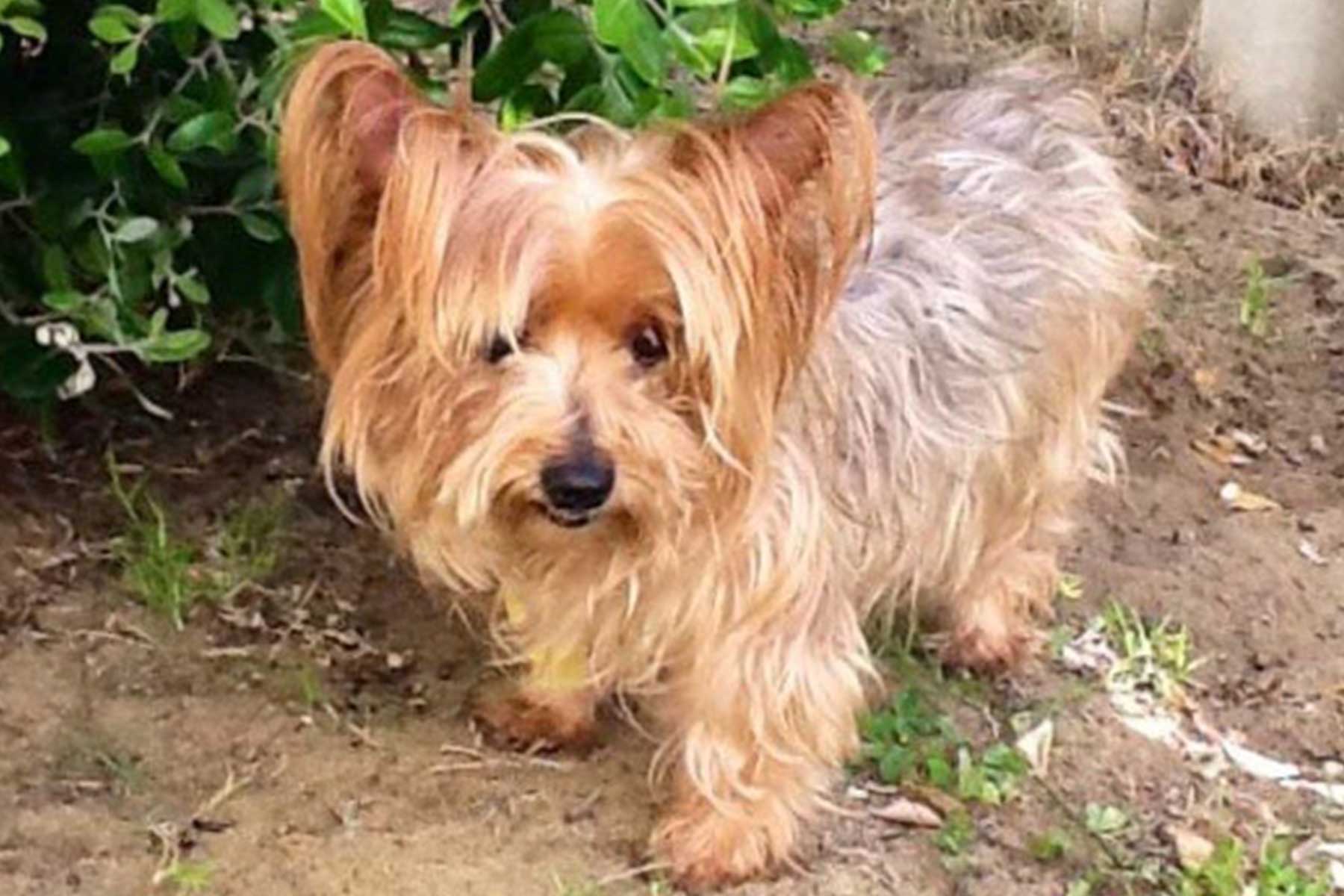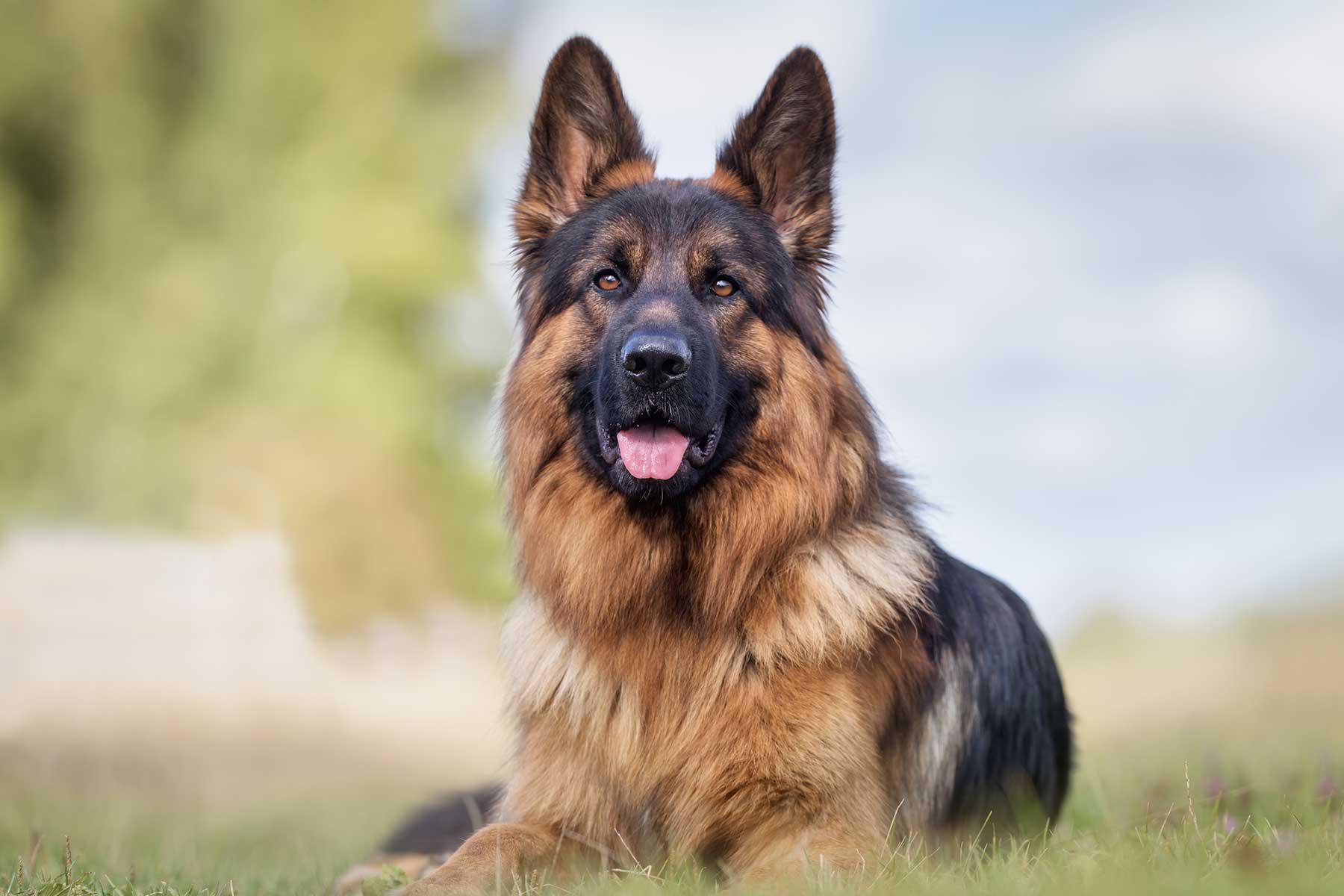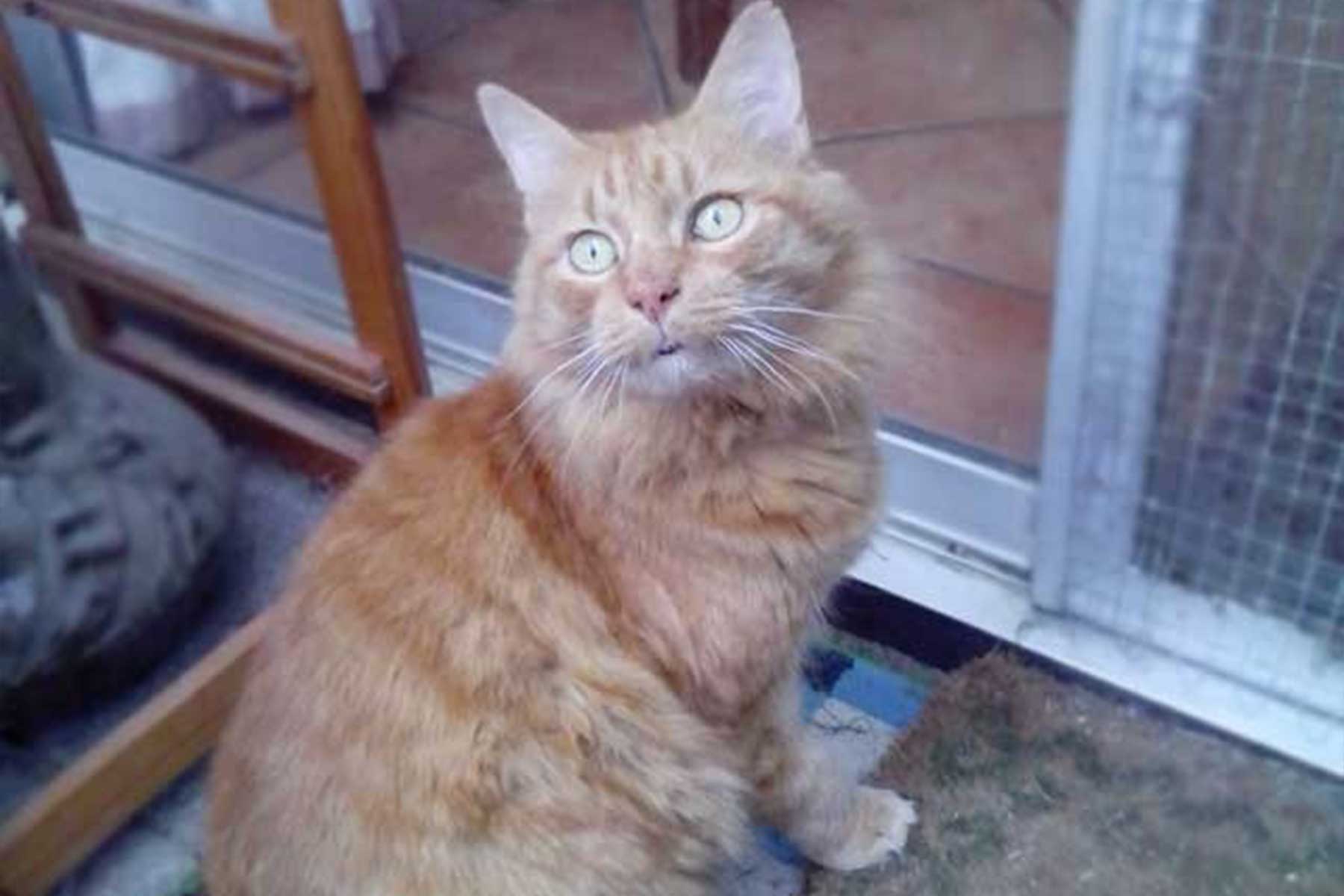Sometimes something so small that you cannot see it with the naked eye can cause a lot of problems. Such was the case with Stanley a 2 year old Cocker Spaniel x Poodle who was brought in to Vetwest Animal Hospitals by his owners after they noticed he had a sore left eye.
After a consultation with one of the veterinarians, a corneal ulcer was diagnosed. Stanley had recently been running through some bushes and this was suspected to have resulted in a small scratch to the clear surface of his eye. Treatment was started with an eye ointment to prevent infection and anti-inflammatory tablets to relieve any pain. Normally corneal ulcers heal uneventfully within a period of 7-10 days and the patient feels more more comfortable with the pain under control.
This was not the case with Stanley – after several days he was still uncomfortable and the ulcer was not healing as well as would be expected, so he was referred to Dr Yolandé Oosthuizen at Vetwest Currambine for further investigation. Dr Yolandé has a particular interest in Ophthalmology (eye care) and has advanced equipment to assist in detailed examination of eyes and to aid in the diagnosis of less common eye diseases (similar to a human ophthalmologist).
Stanley was holding his left eye closed and did not like it being looked at – indicating that the area was still irritated and painful. On examining the eye with a slit-lamp biomicroscope under 16x magnification, Dr Yolandé was able to diagnose the prickly problem. Stanley had a small hair growing through the conjunctiva on the inside of his upper eyelid (called an ectopic cilia). This tiny hair was rubbing on the cornea preventing the ulcer from healing and causing considerable pain.
Ectopic cilia are small hairs that are growing in places they shouldn’t be along the inside of the eye. Breeds that are predisposed to this include: Flat coated retrievers, Pekingese, Shih Tzu, Cavalier King Charles Spaniels, Boxers, English bulldogs, Poodles and Jack Russell Terriers (K. Gelatt 2008)
Considering the aggravation this prickly hair was causing, it was decided to remove the ectopic cilia under general anaesthetic on the same day. Stanley was prepared for anaesthesia by the veterinary nurses and the hair and its follicle were surgically removed under magnification using an operating microscope.
Stanley’s owners are happy to report that he is back to his normal happy bouncy self and Dr Yolandé can now confirm his ulcer has completely healed.

